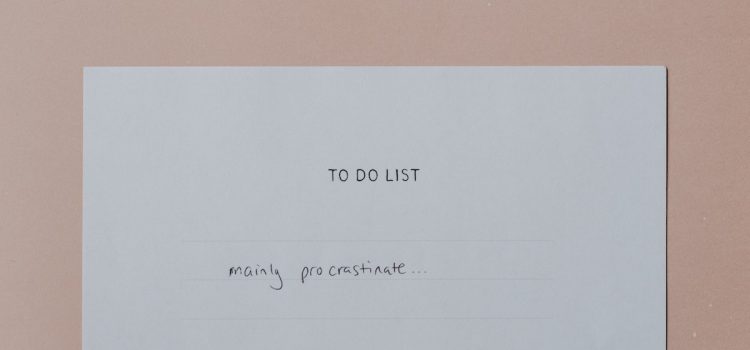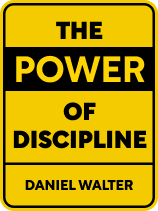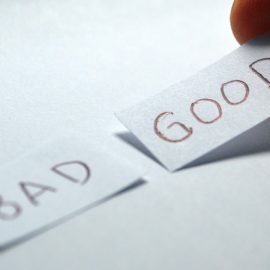

This article is an excerpt from the Shortform book guide to "The Power of Discipline" by Daniel Walter. Shortform has the world's best summaries and analyses of books you should be reading.
Like this article? Sign up for a free trial here.
Do you have a tendency to put things off when they need to be done? Has this become a habit for you?
Humans struggle with self-discipline. As a result, we fail to reach our goals. One culprit is the biological tendency to procrastinate. When the tendency becomes a habit, we dig the hole even deeper. But, Daniel Walter offers two practical suggestions for climbing out of this hole.
Read more to learn about how the habit of procrastination works against you and your ability to self-discipline—and how to fight back against this force.
The Habit of Procrastination
Walter explains that procrastination weakens our ability to self-discipline because the more we procrastinate, the more habitual it becomes, and the less likely we are to practice self-discipline. Self-discipline is a skill that takes practice to develop. Procrastination, a type of temptation and instant gratification, stands in opposition to self-discipline. So, when you have a habit of procrastination, you actively weaken your ability to make productive choices (to self-discipline).
(Shortform note: In The Now Habit, Neil E. Fiore agrees that procrastination ultimately leads to more procrastination, which in turn weakens our ability to self-discipline. Furthermore, he provides a more in-depth explanation of why this happens. Fiore argues that we’re taught by society that work should be hard: Therefore, we dread it. This dread leads to a vicious cycle that feeds our procrastination: We dread the work, procrastinate to avoid it, feel guilty about procrastinating, and then continue to avoid thinking about or doing work to evade all the dread and guilt it stirs up.)
There are two main forms of procrastination. First, we might delay hard work in favor of something that’s instantly gratifying. Second, we might spend more time planning work than actually doing work, making us less likely to start the work at all.
For example, imagine that you want to submit a piece for an art show next month. Creating the piece of art might take 10 hours, so you tell yourself that you might as well start next week and do something fun like watch TV right now. Next week, you start to plan your piece, but you still have three weeks before the due date so you take your time coming up with the perfect idea. By the time the week of the show arrives, you’re cramming to complete your artwork. You aren’t accepted into the show because you procrastinated and didn’t have enough time to produce a high-quality piece.
To resist the tendency to procrastinate, Walter makes two suggestions. First, get started on a task as soon as possible after deciding to do it—this will ensure that you complete your work on time or even ahead of schedule, allowing for higher-quality results. Second, stop planning and start doing a task when you’re 70% sure you’ll succeed—perfection doesn’t exist, so if you plan until your idea’s perfect, you’ll never get anything done.
| Procrastination Isn’t Always Bad In A Mind For Numbers, Barbara Oakley also explores the two main types of procrastination mentioned here; however, she argues that only one of these types is harmful. She explains that deferring tasks to continue planning them can be beneficial because it saves you from having to rework rushed decisions or tasks later. On the other hand, she agrees that consciously choosing to put off work to do something more immediately favorable (like watching TV) is unproductive. She differentiates between these two forms of procrastination by labeling the latter as habitual procrastination. Oakley’s recommendations for how to overcome procrastination both align with and differ from Walter’s. Both authors agree that you should start tasks as soon as possible to avoid procrastination. However, Oakley adds that you should get the hardest tasks done first to avoid burnout—you’ll naturally have more energy first thing, and if you get hard tasks finished early, you might have more time for rest. Oakley doesn’t echo Walter’s recommendation to stop planning and start working when you’re 70% sure you’ll succeed—likely because she believes that spending time planning isn’t a negative form of procrastination and therefore shouldn’t be curbed. |

———End of Preview———
Like what you just read? Read the rest of the world's best book summary and analysis of Daniel Walter's "The Power of Discipline" at Shortform.
Here's what you'll find in our full The Power of Discipline summary:
- What self-discipline is and why we struggle with it
- How to do what you should do even if it's not what you want to do
- The six good habits that will override your bad habits






